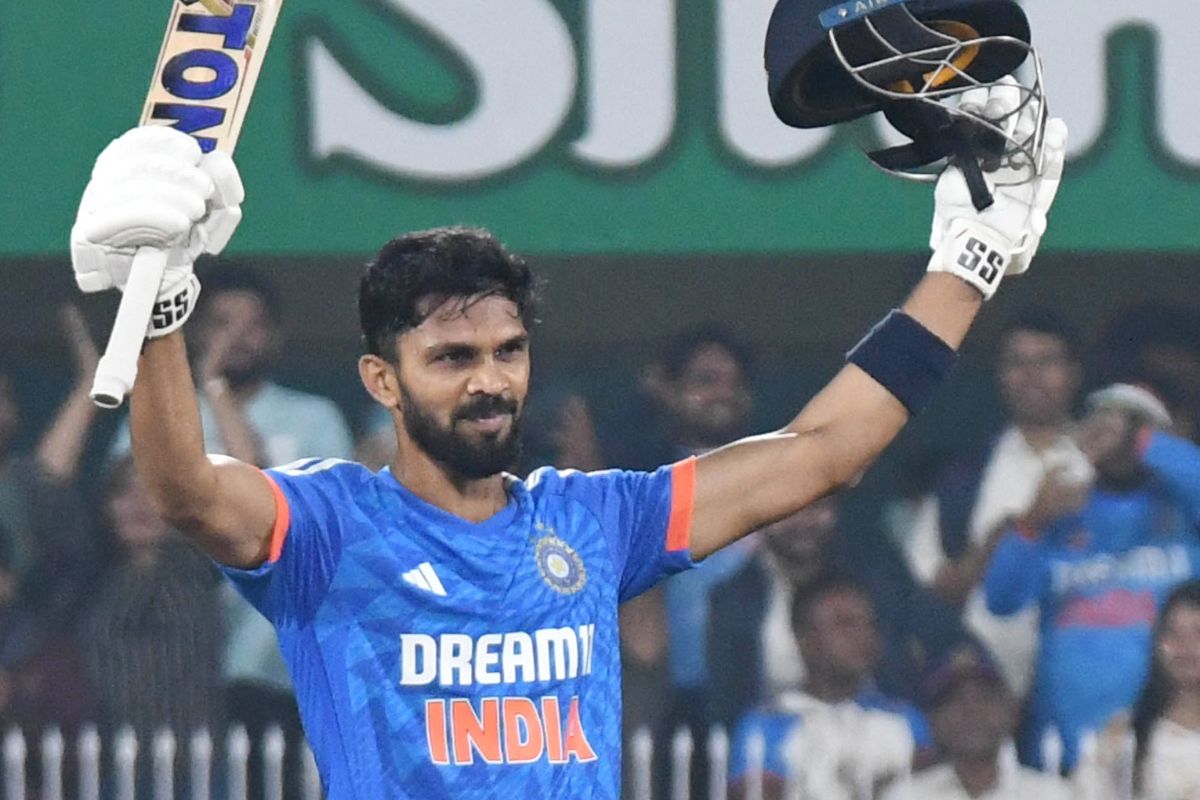India’s death bowling has been found lacking the sting in the ongoing five-match T20I series against Australia, with the likes of Arshdeep Singh and Prasidh Krishna, allowing a free hand to the dashing Aussie middle and lower order batters.
India missed out on a golden opportunity to seal the series in the third T20I here on Tuesday despite putting up a formidable 222 for 3 after riding on vice captain Ruturaj Gaikwad’s maiden T20I century, as Glenn Maxwell slammed an undefeated 104 to power the visitors home and keep the series alive 2-1 in the last-ball thriller.
Advertisement
Australia needed 88 from the last five, and with Maxwell in the middle, it was always going to be a challenge for any bowling side, besides the dew already making things difficult for the fielding side. The right-hander, playing his final match on the tour before flying back home for much-needed rest and preparing himself for the grueling Australian summer, carted the Indian bowling around for runs to script a fascinating come-from-behind five-wicket win.
Defending India’s death bowling, Gaikwad reasoned that it’s tough on the bowlers in such unfavourable conditions.
In a reply to The Statesman during the post-match presser, Gaikwad said, “I don’t think death bowling is a concern. They are bowling with a wet ball and it’s tough on them. In these conditions, 12 runs an over, and even 13-14 runs an over are gettable. Even in the first game, we saw how easily we managed to chase 210. It’s just that the conditions are slightly tougher for them so we have to accept that and move on.”
Gaikwad felt Maxwell, who added 91 runs off just 40 balls with skipper Matthew Wade, deserved the credit for the way he took away the game from the home side’s grasps.
“I think Maxi batted really well, and to win from a situation where they needed 100 from seven or seven-and-a-half overs, and then 50 from three overs, it was a creditable innings from him,” he said.
“Our bowlers tried executing what they had in their control, and the dew was making the ball slip, so it was tough for the bowlers as well. Even though we scored 230 in the last game, in between we felt the match might go till the last over. So with this kind of dew, these totals are bound to happen and bound to be chased.”
Maxwell’s efforts meant Gaikwad’s unbeaten 123 went in vain. His start to the knock wasn’t a rosy one, being on run-a-ball 22, before reaching his fifty in 32 balls and then accelerating his way to get his hundred in 52 balls.
“Initially I felt it (pitch) was a little tacky, the ball was stopping a little bit, and there was some movement in the air and off the pitch as well. The first two-three overs, the wicket was like that, and we lost two wickets in a span of one over. It was important to stitch a partnership, but after 7-8 overs the wicket got slightly better,” Gaikwad said while explaining his approach.
“You cannot tend to lose three wickets in the powerplay. Knowing that Surya was there (and) he will play his shots, my plan and the communication was simple – that I will bat for a short span of time and (then) take the innings on,” he concluded.
Gaikwad is hopeful that the team will bounce back in the remaining two games, and pocket the series.
The teams will now head to Raipur for the fourth game on December 1 before travelling down south to Bengaluru for the final match on December 3.











